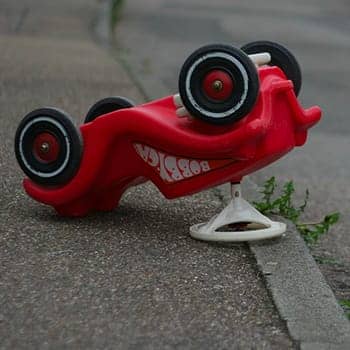Podcast: Download
Subscribe: Apple Podcasts | RSS

Obviously, you need to consult with a doctor first, but you might find the Michael Gusman’s brain trauma experience inspiring – and something you want to share with your medical professional.
In this episode of the Magnetic Memory Method Podcast, you’ll hear directly from him.
Why should you care?
Because Michael’s a memory enthusiast who was t-boned by an SUV at 55 miles per hour.
As a result, Michael suffered multiple injuries and a brain hemorrhage that left him with short term memory loss.
In this interview you’ll learn Michael’s personalized Memory Palace methods and wound up healing his memory.
He’s not the only one to experience memory improvement following brain injury. Matt Barclay not only recovered his memory, but gone on to give an incredible memory demonstration.
That means if you’re having memory issues from an accident, you stand a chance at great recovery too.
Plus, when you listen to this episode of the Magnetic Memory Method Podcast:
- You’ll learn what the journey method is and how it can help you recall information without any effort.
- You’ll learn how having a dedicated memory strategy helped him deal with the fear and confusion of memory loss following his accident.
- You’ll hear about exactly how much of his recovery he attributes to the use of memory techniques.
- You’ll learn how to directly place information into your long term memory so that when you want to recall it, it’s just like turning on a faucet.
- You’ll learn about number rhymes and wax tablets, key techniques that anyone can get started using right away.
- You’ll learn why memory techniques are a lot easier than they seem and how to use exotic action, images and even smells to help you memorize information.
- You’ll learn Michael’s biggest mistakes as he was first learning memory techniques and building Memory Palaces so that you don’t have to make them yourself.
- … and much, much more.
Enjoy this interview and let both Michael and I know if you have any questions.
And before you go, it’s not just car-crash induced brain trauma that mnemonics can help you recover from.
Check out this TEDTalk for some very interesting research into the use of Memory Palaces to help Alzheimer’s patients remember the names of their loved ones:
I’ve also run across an interesting report about people using Memory Palaces to stave off the effects of so-called “chemo brain.” That will be fantastic news if it really helps people cope with the terrible suffering of the cancer itself and the side effects of the medicines used to treat it.
Further Resources
Jim Samuels on how to use mnemonics to reduce stress.
Traumatic Brain Injury article in Wikipedia.
If you’ve experienced memory loss from brain trauma or illness, let me know in the comments below. I’m always searching for ways to help! 🙂



